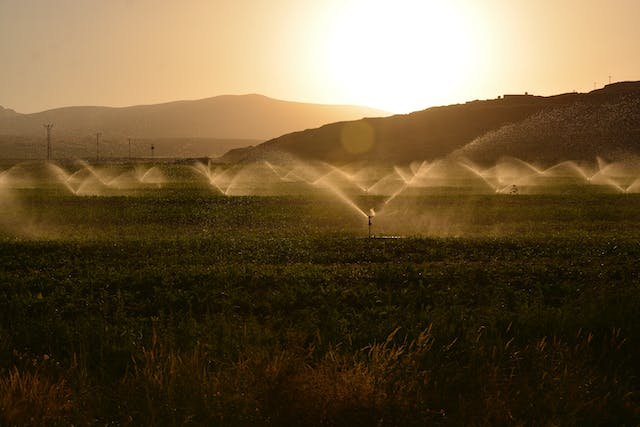Water is becoming an increasingly precious resource due to the rising population and the impacts of climate change. One way we can fight back is to conserve water. And one sector that can certainly benefit from more efficient practices in multiple ways is irrigation.
What Are the Key Benefits?
Traditional irrigation methods can result in excessive water usage, leading to wastage and potential harm to the environment. By conserving water for irrigation, we can reduce the strain on water resources and promote sustainability. It allows us to strike a balance between meeting our irrigation needs and preserving the natural water cycle.
Here is a summary of the environmental benefits:
- It reduces the strain on freshwater sources, such as rivers, lakes, and underground aquifers. These sources often face depletion due to overuse, and conserving water helps maintain their ecological balance.
- With less energy used to pump water, carbon emissions are lowered.
- By reducing water runoff and ensuring adequate soil moisture, water conservation practices aid in preventing soil erosion.
- Water conservation practices in irrigation protect water quality by preventing sediment and pollutants from entering nearby water bodies.
- We contribute to the overall health and sustainability of our ecosystems with better water conservation practices in irrigation.
Financial Advantages of Water Conservation in Irrigation
By adopting water-saving measures, you can effectively reduce your water consumption, resulting in lower costs. In addition, you can improve energy efficiency. For example, by implementing an automated irrigation system, you can optimize your watering schedules based on plant needs, reducing the energy required for pumping water.
Implementing an Automated Irrigation System for Water Conservation
By utilizing sensors, timers, and moisture monitoring devices, an automated system ensures that plants receive the right amount of water at the right time. Such systems help reduce overwatering and water waste. Additionally, automated systems can be programmed to respond to weather conditions, adjusting watering schedules accordingly.
You can automate your irrigation to conserve water by investing in a solution by Lumo. They’ve revolutionized the way growers automate their irrigation. With their technology, you can automate up to 90% of your current irrigation labor.
In addition to reducing your costs and improving efficiency, you can also save time by using automation technology. Just sit back and manage your irrigation watering from your device, whether you’re using a laptop or mobile phone.
More Ways to Conserve Water for Irrigation
- Start by evaluating your existing irrigation system to identify any inefficiencies or areas for improvement. Look for leaks, broken sprinkler heads, or areas where water is being wasted.
- Invest in water-efficient irrigation equipment, such as low-flow sprinkler heads or drip irrigation systems.
- Water your crops during the early morning or late evening when temperatures are cooler.
- Apply a layer of mulch around plants and in garden beds to reduce evaporation and retain moisture in the soil. Mulch also helps control weed growth, minimizing competition for water.
- Install rain barrels or cisterns to collect rainwater from your roof.
Conserving water for irrigation is good for the environment, your products, and your business. Use the right tools ad techniques to take advantage of water conservation for irrigation today.








